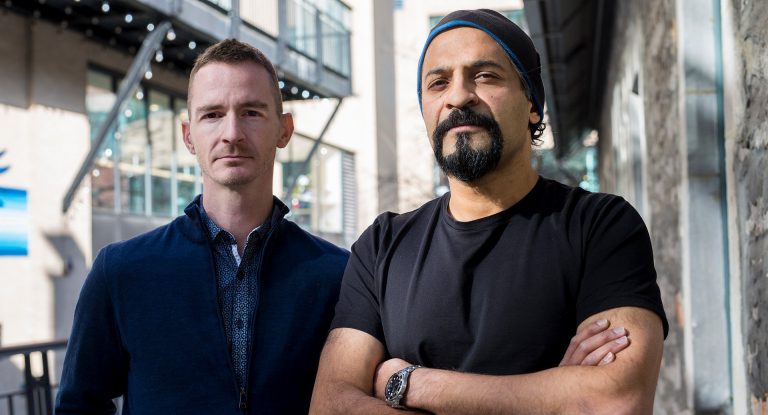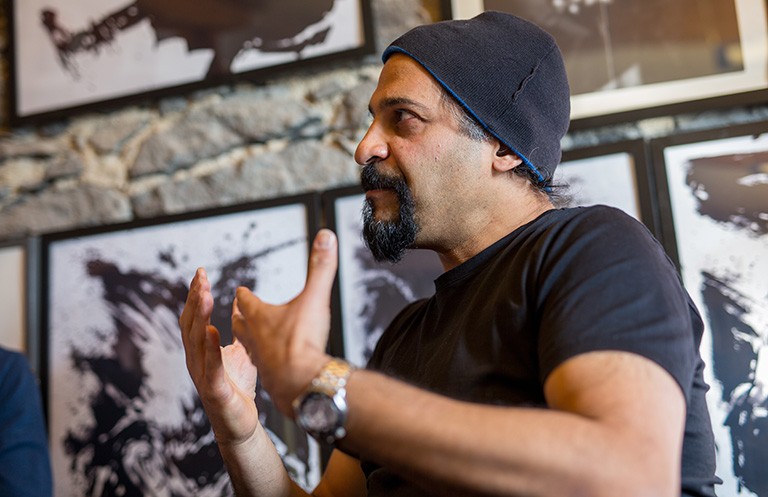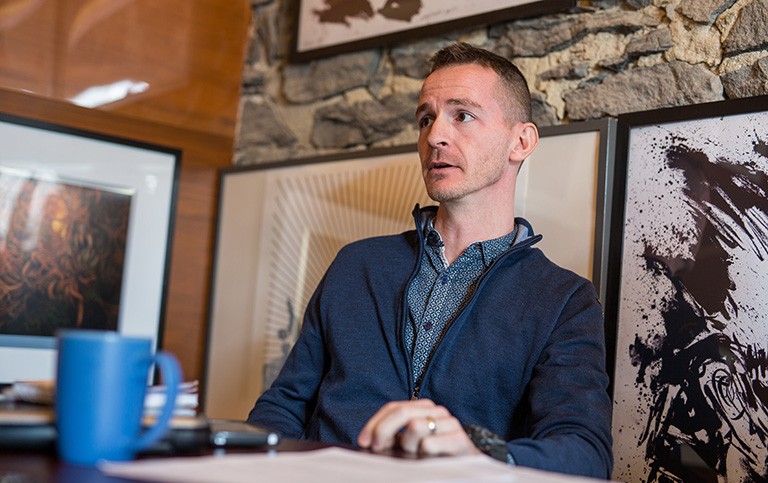Researchers work with former right-wing extremists to prevent and counter recruitment into violent organizations

As groups like The Base aspire to ever-more violent acts, Canadian law enforcement authorities are treating right-wing extremism as a mounting threat to the country’s security.
However, even as these groups actively seek out new, young recruits, older ones are leaving. Disillusioned members depart for a variety of reasons — usually at significant personal risk —and they have valuable information they can share with researchers.
In two new articles published in the journals Studies in Conflict & Terrorism and Perspectives on Terrorism, Concordia researchers present in-depth analyses of life-course interviews with former members of right-wing extremist groups.
These formers offer their candid opinions on ways recruitment into these groups can be prevented and countered, and on the options available to those who want to leave.
The papers’ lead authors are Ryan Scrivens, a former Horizon Postdoctoral Fellow at Concordia and now an assistant professor at Michigan State University’s School of Criminal Justice, and Maxime Bérubé, a SSHRC Postdoctoral Fellow working with Project SOMEONE.
Co-authors include Vivek Venkatesh, the UNESCO co-chair in Prevention of Radicalisation and Violent Extremism and associate professor of inclusive practices in visual arts in the Department of Art Education, and Tiana Gaudette, a master’s student at Simon Fraser University.
 Vivek Venkatesh
Vivek Venkatesh
Off the grid and in the void
During his time at Concordia, Scrivens — the lead researcher on this project — prepared hundreds of interview questions he compiled with input from stakeholders including community activists, academics and law enforcement, and spent dozens of hours interviewing formers.
“Drawing from the voices of insiders not only offers a first-hand account of the strategies that did and did not work during their process of disengagement from violent extremism, but it also sheds light on the strategies that may have engaged or diverted formers from getting involved in violent extremism in the first place,” he says.
Scrivens interviewed 10 formers — eight men and two women, from across the country — who were considered “off the grid,” meaning they had never shared their experiences publicly.
“They haven’t really thought about their life course beforehand, so they were not giving us a scripted story they created over time,” says Venkatesh.
“We found there were these push-and-pull factors that roped them into this movement,” says Bérubé. “Some had previous experiences of victimization, they felt neglected, they were looking for an identity or for status, and that is what the movement gave them.”
But they also noted similarities in the reasons why they left.
“They were getting older, they had a wife who made them decide between her and the movement, or they had kids and could not imagine bringing their kids up or educating them in that environment,” says Venkatesh. “And they were getting tired of the hatred. It was exhausting.”
Once they left, the formers reported being in what they called “a void” — cut off from their past lives and not yet fully integrated into mainstream society.
It is here, the researchers say, that effective outreach and trust-building by family, friends and professionals can play hugely important roles in helping formers readjust to life outside the movement.
 Maxime Bérubé
Maxime Bérubé
Preventing without judging
Having access to an empathetic and respectful mediator can play a major role in preventing radicalization, he says, whether it is a family member, teacher or police officer. For those who are looking to leave extremist groups, having a relationship with a trustworthy former is invaluable.
The researchers believe that their work has several practical applications. For instance, it can be used to build a curriculum educators can use to discuss difficult subjects. It can also help people who have been impacted by right-wing extremism, either as victims or having witnessed loved ones join a particular group.
It can also help clinical mental health professionals assess formers and develop support mechanisms as they go through the process of disengagement.
Public Safety Canada’s Community Resilience Fund as well as the Fonds de recherche du Québec helped fund these studies.
Read the cited papers: Combating Violent Extremism: Voices of Former Right-Wing Extremists and Converging Patterns in Pathways in and out of Violent Extremism: Insights from Former Canadian Right-Wing Extremists.
Visit the website for video interviews with researchers and former extremists who have collaborated with the UNESCO Chair and Project SOMEONE.
Watch Vivek Venkatesh discuss "Life after hate" during The Walrus Talks Living Better, which took place October 29 at The Isabel Bader Theatre in Toronto:


